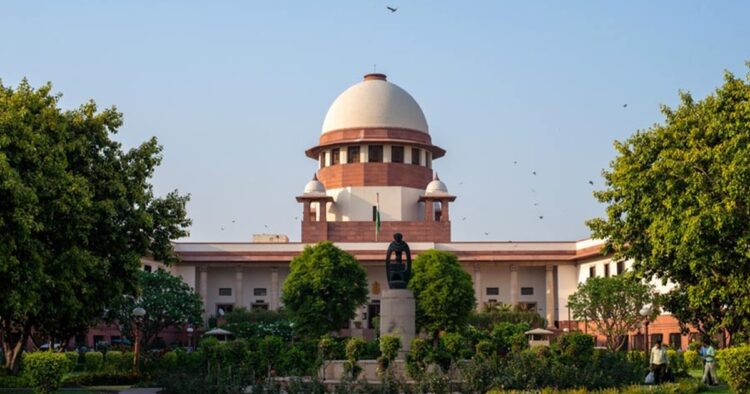In a significant development, the Supreme Court has decided to transfer all proceedings related to alleged irregularities in issuing Scheduled Caste/Scheduled Tribe (SC/ST) certificates in West Bengal from the Calcutta High Court to itself. This decision was made during a hearing in which the top court asked the West Bengal government to submit an affidavit detailing the current status of the investigation into these cases.
A five-judge Constitution bench, led by Chief Justice DY Chandrachud, has directed the completion of pleadings within three weeks. The decision comes amid a dispute between two benches of the Calcutta High Court, primarily revolving around the demand for a Central Bureau of Investigation (CBI) probe into the purported irregularities in the issuance of caste certificates for candidates seeking reserved category seats.
The Constitution bench, consisting of justices Sanjiv Khanna, BR Gavai, Surya Kant, and Aniruddha Bose, has expressed its intention to hear the pleas after the stipulated three-week period. This move aims to address the ongoing judicial discord in the Calcutta High Court regarding the investigation into SC/ST certificate irregularities.
On January 27, a Supreme Court bench convened on a holiday to address a judge’s overruling of a division bench’s decision. The division bench had quashed the judge’s directive for a CBI investigation, instructing the central agency to proceed with the probe. In response, the Constitution bench decided to take charge, staying all proceedings related to the tussle in the Calcutta High Court.
The core of the matter involves Justice Abhijit Gangopadhyay accusing his fellow judge Soumen Sen of the division bench of favoring the interests of the Mamata Banerjee-led West Bengal government to overturn his order for a CBI investigation. Chief Justice Chandrachud’s Constitution bench refrained from making any allegations against the High Court judges involved.
During the proceedings, Kapil Sibal, representing the Mamata government, stated that judges continued to take up such cases, and this practice would persist in the future. Despite Sibal’s request, Chief Justice Chandrachud refused to restrain Justice Gangopadhyaya from hearing politically sensitive cases. Chandrachud emphasized that they were dealing with a High Court judge and clarified that any statements made during the proceedings should not undermine the dignity of the Calcutta High Court.
This move by the Supreme Court reflects its intervention to streamline the investigation into SC/ST certificate irregularities in West Bengal, aiming to bring clarity and resolution to the ongoing legal disputes. The three-week timeline for completion of pleadings suggests a swift and focused approach to address the concerns surrounding the issuance of these crucial certificates.

















Comments